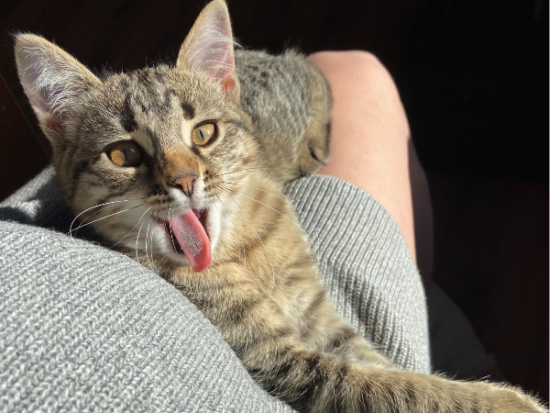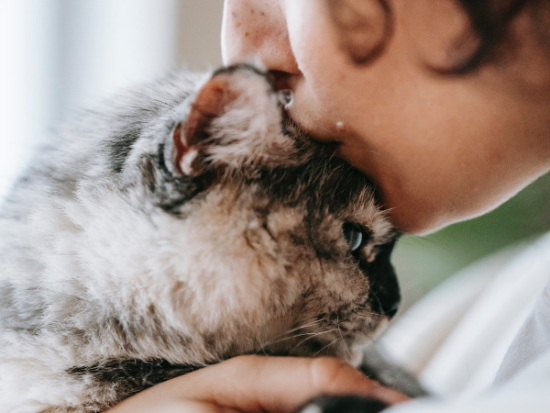Can cats have asthma?
Cat asthma, believe it or not, is thought to affect about 5% of cats worldwide. That’s a pretty high number considering the many, many domesticated felines plus those roaming here and there on the streets. It is a more common affliction for outdoor cats than indoor cats because they are more exposed to allergens in the open air.
Much like in humans, feline asthma is acquired. Although experts cannot pinpoint the triggers, most agree that it is caused by an allergic reaction to something in the air. If you suspect your furry friend may have asthma, read on to know the symptoms, diagnosis, and treatments.
What does asthma mean for animals?

Asthma, also known as allergic bronchitis, is one of the most prevalent respiratory diseases among humans. It is associated with the inflammation of the lower airways in the lungs called bronchial tubes that causes the airways to swell, thus the difficulty in breathing. Unfortunately, dogs and cats alike can also be affected by asthma.
Much like in humans, asthma for animals results in an obstruction of the cat’s airways when the bronchi or air passages fill up with mucus and go into spasms. Both dogs and cats can suffer from a full-blown asthma attack at any age, but it happens more commonly to young and middle-aged pets.
Related Articles
Best CBD Pet Treats on Amazon
How to Know if You Have a Pollen Allergy
Cool and Unique Male Dog Names
Can felines have asthma?
Diagnosing asthma in cats can be tricky. The first signs of being wary are constant coughing and wheezing, respiratory efforts that affect your pet’s inflamed bronchial tubes. There are other side effects, but you will need to see an animal medical professional be particular.
The good news is that feline asthma is rarely life-threatening. The cause may vary, but it usually has something to do with pollen and allergens present in the air. Veterinarians typically prescribe oral medication, antihistamines, steroids, bronchodilators, or a combination of any of these to help manage asthma.
What to do when your cat has asthma
According to experts, there may be other factors, but allergies are the leading cause of cat asthma. Cat coughing and wheezing is an inflammatory response to allergens.
If a feline is sensitive to specific allergens, the immune system may release chemicals that cause inflammation in the lower airways and your cat’s lungs. Unfortunately, there is no cure for asthma, whether human or animal, but a treatable condition. With the proper precautions, you can prevent or manage asthma for your beloved feline.
Causes
Some allergens that may be possible triggers to cat asthma include nicotine smoke, aerosol chamber sprays, dusty cat litter, pollens from plants, mildew and mold, household cleaning chemicals, and particular food and drinks. Some conditions may also contribute to asthma, such as obesity, extreme stress, pneumonia, and parasites.
Related Article: What to Do During A Dog Attack
Symptoms
If your feline is suffering from asthma, they may show multiple symptoms. The most common one is difficulty breathing by coughing and wheezing, hacking, lethargy, vomiting, and overall lack of energy and appetite.
The cat may also squat with hunched shoulders and neck extended close to the ground as a sign of hard breathing. Pay close attention to your pet’s body language and habits.
Diagnosis
Other symptoms may also be present, but to be sure, several tests can be done. Chest x-rays, bronchoalveolar lavage (BAL), blood tests, heartworm tests, and CT scans may be necessary to rule out other respiratory health issues. Veterinarians will need the complete medical history of your pet to make a clear and concise diagnosis as much as possible.
Treatments and cat medications
Treating feline asthma is pretty much the same as managing human asthma. Asthma is a progressive condition, and there is no cure. However, it is manageable, and your pet might be prescribed corticosteroids to reduce inflammation in the lungs, with or without bronchodilators, to help dilate the airways.
These types of drugs can be given to the cat in oral, injectable, or inhalable forms. Experimental therapies are also an option, but further research is still needed to see if they are effective.
Related Article: 10 Domestic and International Airlines to Fly
Prevention
The key to preventing cat asthma from developing is to take extra precautions around your pet. Try to keep their immediate surroundings clean and free of dust or other potential allergens. Avoid using aerosol products and heavily-scented solutions, no smoking inside the house, and most importantly, seek medical help when you see symptoms developing. It’s rare but extreme cases may cause airways to close and your pet to stop breathing altogether.
Life span
While cat asthma may fail to improve over a significant period, it isn’t a life-threatening condition to your feline friend. They may experience flare-ups and attacks, but so long as you have the proper medication and administer them immediately, your pet should be fine. There is no cure for asthma, but most cats who suffer from the disease live long and happy lives.
What are breeds more susceptible to asthma?
Any breed of cat can develop asthma. Your pet’s genetic makeup may contribute to their chances of developing it, but there isn’t enough scientific data to back this up. Some research suggests that Siamese cats are more commonly asthmatic, but that hasn’t been verified by experts either. In sum, all cats can develop asthma if allergens trigger their immune system.
Related Article: 6 Benefits of Eating Organic Chicken
Final Thoughts
While there is no cure for asthma, there is no need to worry as it is an entirely manageable condition, much like human asthma. However, it is also important to note that the levels of symptoms may vary. If your cat is showing severe symptoms, get medical attention immediately.
There are also other ways to prevent your pet from acquiring asthma in the first place or alleviate their symptoms. A sound immune system is one, and a healthy lifestyle is another. Be sure to increase their vitamin intake under medical supervision, feed them proper and healthy food, and reduce stressors in their environment.




